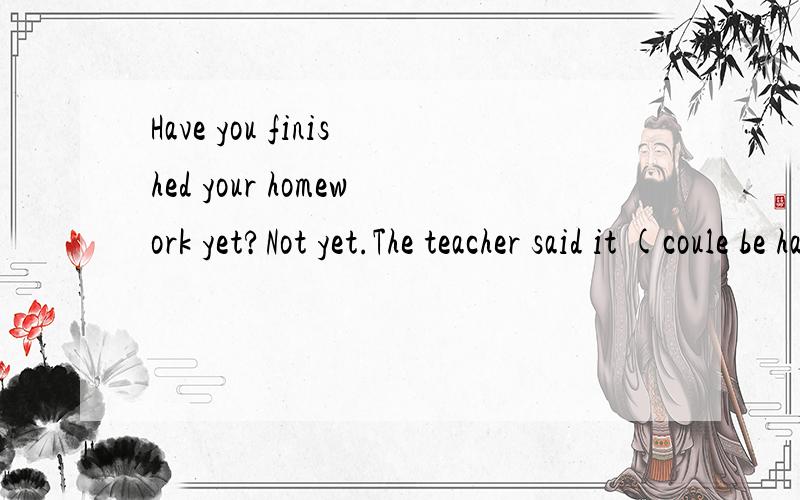Have you finished your homework yet?Not yet.The teacher said it (coule be handed in)tomoorowHave you finished your homework yet?Not yet.The teacher said it (coule be handed in)tomoorow.括号里为什么不用 could hand in
来源:学生作业帮助网 编辑:作业帮 时间:2024/11/15 17:01:37

Have you finished your homework yet?Not yet.The teacher said it (coule be handed in)tomoorowHave you finished your homework yet?Not yet.The teacher said it (coule be handed in)tomoorow.括号里为什么不用 could hand in
Have you finished your homework yet?Not yet.The teacher said it (coule be handed in)tomoorow
Have you finished your homework yet?
Not yet.The teacher said it (coule be handed in)tomoorow.
括号里为什么不用 could hand in
Have you finished your homework yet?Not yet.The teacher said it (coule be handed in)tomoorowHave you finished your homework yet?Not yet.The teacher said it (coule be handed in)tomoorow.括号里为什么不用 could hand in
先说前面的主语是it代表的作业不是人
如果是it could handed in tomoorow
在明天它能交
这就成了作业是自已交上去的,而不是人
但it (could be handed in)tomoorow 这样确是它被交上去,是被交记住,说明不是作业自已交上u交了,是有人把他交上去了,所以要用被动语态.
中文大家不在意,但在英文里这个要作区分的
因为这是一个被动语态啊 作业“被”上交
此句翻译为:你完成你的作业了吗?——还没有,老师说,他可以明天被上交
希望帮到你,祝学习进步
因为这里是被动语态 ,the homework 被交上去